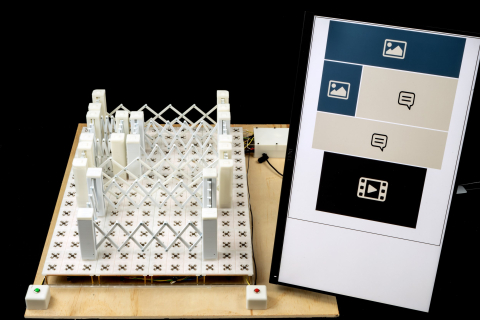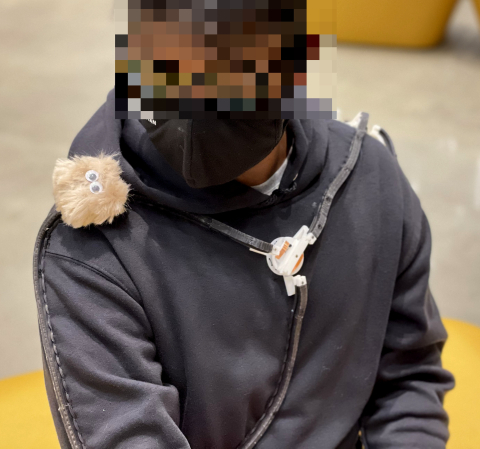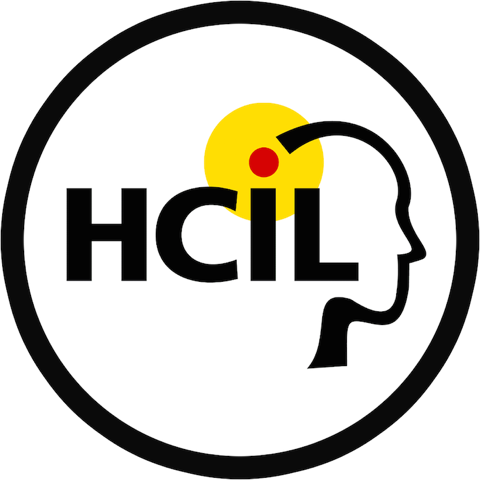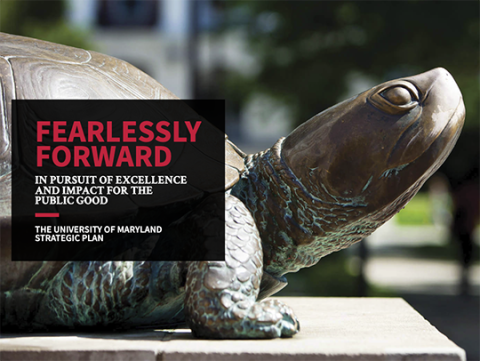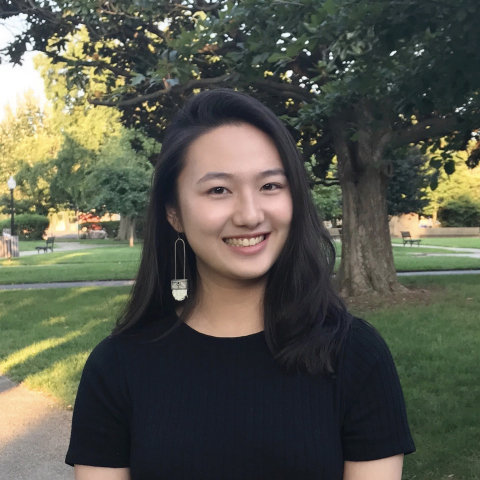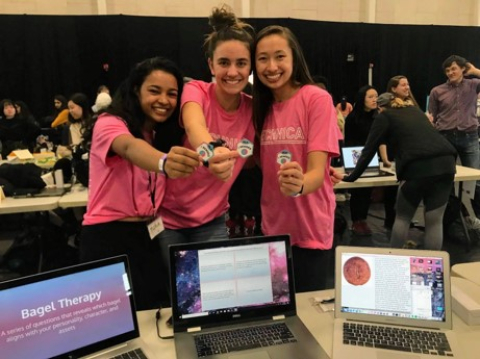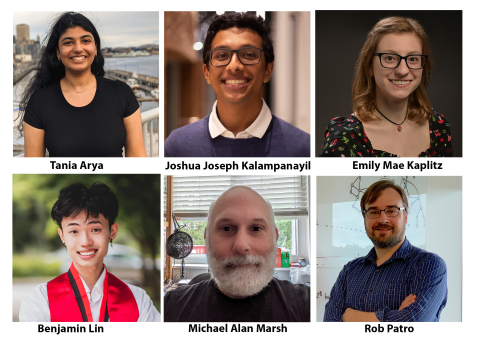Recent News & Accomplishments
2022
There are numerous applications to help blind users surf the web, yet there are few tools to help them design the visual layout of a web page, and those available are challenging to operate independently. Researchers at the University of Maryland are increasing accessibility in this area by developing a novel device that lets blind users create a web layout with their hands. With TangibleGrid, blind designers snap and resize brackets representing visual elements—like a text box or video—to a physical baseboard. The baseboard senses the brackets’ type, size, and location; verbalizes the... read more
Wearables like fitness trackers and smartwatches are widely used for health monitoring and digital interactivity. Yet most of these devices are worn in a single spot, even though there are various body locations best suited for specific types of sensors. It’s optimal to monitor your breathing on the upper body, for example, while the wrist is ideal for tracking typing and writing. To place wearable sensors where they can do their best work, researchers at the University of Maryland have developed a miniature robotics system designed to assist in a myriad of tasks by traversing to numerous... read more
A trio of visualization and software experts affiliated with University of Maryland’s Human-Computer Interaction Lab (HCIL) are being honored at VIS2022 for an academic paper they co-authored 20 years ago. Catherine Plaisant, Jesse Grosjean and Ben Bederson will be recognized with the IEEE VIS Test of Time Award on October 18 for their work on zoomable tree browsers, a novel way of representing and rapidly navigating information organized hierarchically, such as organizational charts. The prestigious award recognizes papers published at previous conferences that are still vibrant and useful... read more
New UMD program to support campuswide efforts to tackle societal problems.
University leaders today unveiled nine proposals for Institutional Grants selected to move forward in the Grand Challenges Grants program, which will provide up to $30 million in institutional investments to fund initiatives and projects designed to accelerate solutions to society’s largest and most complex problems. In response to the call for proposals for Grand Challenges Institutional Grants, 24 letters of intent (LOIs) were submitted, involving 210 faculty and well over 100 staff from all 12 colleges and schools and several campus divisions. The proposed projects address critical issues... read more
Computer science graduate student Trista Cao and math graduate student Anna Sotnikova want to curb harmful language in natural language processing models
If you’ve ever done a Google search or chatted with Amazon’s virtual assistant Alexa, you have seen natural language processing (NLP) at work. This form of artificial intelligence (AI) teaches machines human language, allowing them to interpret and generate text in much the same way a person would. While NLP models can convincingly mimic human language, they may also reflect human biases toward various social groups. With the goal of minimizing harm and enabling more equitable language in AI, University of Maryland computer science graduate student Yang “Trista” Cao and mathematics graduate... read more
UMD computer science major Genevieve Sampson shares thoughts on her first Technica and her current role as co-executive director of the world’s biggest hackathon for underrepresented genders.
Before college, University of Maryland computer science major Genevieve Sampson had never written a line of code in her life. Encouraged by some peers, she decided to attend UMD’s Technica hackathon for underrepresented genders during her freshman year, after hearing that it was a free student-run event for anyone interested in coding and computer science —even those without any prior experience. “I was probably on month three of my computer science intro classes. I didn’t think I was capable of producing the cool projects I wanted to create,” recalled Sampson, who is now a senior. “But the... read more
Steven Armentrout (Ph.D. ’94, computer science) and his company Parabon NanoLabs are creating breakthrough products in forensics and nanotechnology
In June 2022, a Texas police department solved a 20-year-old cold case , finally putting the man who robbed and murdered a Houston-area convenience store owner behind bars. It was all thanks to a relentless detective, DNA evidence from the crime scene—and a tech innovator named Steven Armentrout (Ph.D. ’94, computer science), whose company Parabon NanoLabs (“Parabon”) is taking DNA innovation where it has never been before. “From 2010 to 2014 we built a system called Snapshot ® DNA Phenotyping that can predict appearance, hair color, skin color, face shape and ancestry from a DNA sample,”... read more
Cleaveland served as director of the Division of Computing and Communications Foundations for four years.
Rance Cleaveland spent the last four years as director of the National Science Foundation’s Division of Computing and Communications Foundations (CCF) , one of four divisions under the Directorate for Computer and Information Science and Engineering (CISE). Since returning to the University of Maryland as a professor of computer science with joint appointments in the University of Maryland Institute for Advanced Computer Studies and the Institute for Systems Research , he shared his experiences and insight in an interview with UMD’s College of Computer, Mathematical, and Natural Sciences... read more
The department is pleased to announce our winners for the teaching award for the academic year 2021-22. Based on the nominations made by the students and the faculty the award committee selected the following recipients for this year's teaching awards: Best Undergraduate Teaching Assistant : Joshua Kalampanayil nominated for CMSC 330, Organization of Programming Languages, and Tania Arya nominated for CMSC 131, Object-Oriented Programming I Best Graduate Teaching Assistant : Emily Kaplitz nominated for CMSC 250, Discrete Structures Best STIC Facilitator : Benjamin Lin nominated for CMSC 389P... read more
Targeted online advertising is now ubiquitous, with search engines and online social networks using powerful targeting technologies so that advertisers can deliver their sales pitch to specific end-users. While these technologies can help users see more relevant ads, they also raise privacy and equity concerns, with targeted ads often impacting employment, housing and credit opportunities that online users see. With funding from the National Science Foundation, a University of Maryland expert in cybersecurity and human-computer interaction is part of a multi-institutional team exploring this... read more
